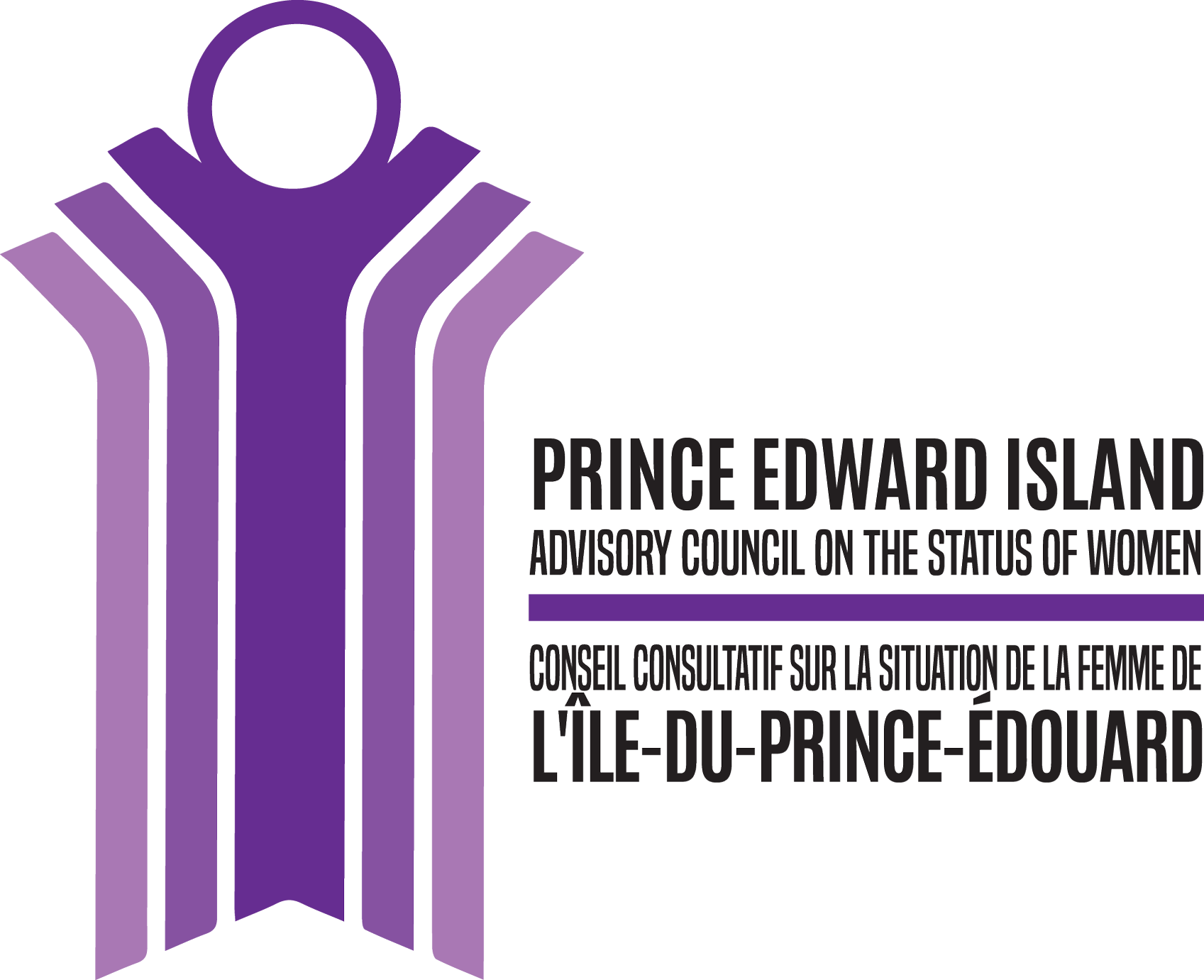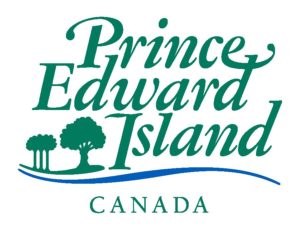PEIACSW Input for the Pre-Budget Consultations for the 2021-2022 Provincial Operating Budget
PEI Advisory Council on the Status of Women
January 21, 2021
Dear Ministers Compton and Jameson:
The following are the responses that I have submitted today on behalf of the PEI Advisory Council on the Status of Women to the pre-budget consultation regarding the 2021-2022 provincial operating budget. Thank you for the encouragement to participate in this consultation. Please consider these survey responses to be the advice of the Advisory Council to you, Minister Compton, as Finance Minister, and to you, Minister Jameson, as Minister Responsible for the Status of Women.
Introduction: Gender Budgeting
The PEI Advisory Council on the Status of Women (PEIACSW) advocates for Prince Edward Island’s government to use the practices of gender budgeting in developing the 2021-2022 budget. Further, we advocate for the provincial government to consider developing legislation for the Province of PEI that mirrors the federal Canadian Gender Budgeting Act passed by Parliament in December 2018, with the goal of “enshrining the Government’s commitment to decision-making that takes into consideration the impacts of policies on all Canadians in a budgetary context.” (See the WAGE Gender Equality Statement for the 2019 federal budget at https://budget.gc.ca/2019/docs/plan/chap-05-en.html.)
The Institute for Gender and the Economy (GATE) at the Rotman School of Management in Toronto defines gender budgeting as “a way for governments and non-governmental organizations to promote gender equality using administrative and fiscal policy. It involves understanding the differences in a budget’s impact on men and women [and other genders] and subsequently creating policies to remedy inequalities.” (See https://www.gendereconomy.org/gender-budgeting-a-tool-for-achieving-equality/.) The United Nations has provided tools for gender-responsive budgeting for two decades, including resources such as Gender Responsive Budgeting in Practice: A Training Manual, published in 2010. (See
https://www.unwomen.org/en/digital-library/publications/2010/1/gender-responsive-budgeting-in-practice-a-training-manual.)
Gender budgeting applies tools to budgeting that are already widely in use within the PEI government: the tools known within the provincial government as gender and diversity analysis and known within the federal government as Gender-Based Analysis Plus (GBA+). The federal government notes, “Gender budgeting is a foundational element of the Government’s strategy to improve equality in Canada.” As the GATE project observes, “By applying a gender lens to budgets, governments can understand the different needs of their constituents and plan, execute and monitor expenditures and revenues more effectively”—in other words, by taking gender and diversity factors into consideration, and by analysing budget data with equitable outcomes for different genders and life experiences in mind, gender budgeting can have better results for all Islanders.
It is very important to PEIACSW Council members to emphasize that gender budgeting must include consideration of the “diversity” in gender and diversity analysis and the “plus” in GBA+. Gender must be considered alongside intersecting factors, such as race, Indigenous status, language, ability, sexual orientation, and age. To cite the federal government’s guide to gender budgeting, “The Government also recognizes that identities are complex. Not all women experience inequality, and not all men experience privilege. Binary notions of gender do not work for all Canadians, and race, class, sexuality, and ability—among other facets—all intersect to profoundly impact how gender is experienced in daily life.” (See https://www.budget.gc.ca/2018/docs/plan/chap-05-en.html.) Gender budgeting requires gender-disaggregated data and also data about the identities and lived experiences that intersect with gender.
A shocking statistical story from the US economy in December 2020 makes the case for considering gender; beyond that, it makes the case even more strongly for considering gender and intersecting factors together. The US economy lost 140,000 jobs in December. However, looking at the data with a gender lens reveals that all of the losses were among women: as a group, women lost 156,000 jobs, while as a group men gained 16,000. Applying a racial lens in addition to a gender lens adds another layer: while women as a group lost 156,000 jobs, white women as a group experienced gains in employment, while Black and Latina women as a group lost the jobs. (See https://challengefactory.ca/2021/01/15/headlines-and-data-employment-is-in-crisis-for-black-and-latina-women-across-the-usa/ for an analysis of reporting from CNN.)
What does a gender and diversity analysis that deeply considers intersecting factors reveal in this example? It reveals unequal outcomes in economic recovery for Black and Latina women. A plan for jobs growth in the US that does not consider both gender and race will risk deepening inequality, with a strong risk that a gender-neutral and race-insensitive jobs-growth policy would benefit men and white women as a group and not benefit those who have experienced the most significant losses: Black and Latina women.
A note of congratulations: One of the first principles of gender budgeting is supporting and encouraging gender-equitable participation and influence in recovery decision-making processes. This is especially important in PEI in 2021 because of low representation of women, diverse groups, and women from diverse groups in Cabinet. The Department of Finance and the Government of PEI should be commended for work to examine the gender and diversity factors in pre-budget consultations and for consulting with women and gender minorities, diverse groups, and women from diverse groups about what would meet their needs in this current consultation process. We commend government for the evidence they applied from what they heard from community members to improve participation in the current pre-budget consultation process. We are hopeful of improved participation, positive influence on decision-making, and more equitable results for all Islanders in the budget process.
What would you like to see in the 2021-2022 Operating Budget?
The focus for the 2021-2022 operating budget for PEI will need to be collective recovery from COVID-19. The effects of the pandemic have been different on different genders, with women and gender minorities, especially women and gender-minorities who are also young or also racialized, facing the greatest loss of employment and risk of unemployment. Gender effects are so pronounced, feminist economists have described the pandemic-induced recession as a “she-cession” and have reminded policy-makers there will be no recovery without a “she-covery.” In other words, recovery will only be as effective as its support for the people most affected. Because those most affected are affected due to gender factors and diversity factors, for recovery responses and budgets to have equitable outcomes for all, they must be gender-responsive, based on gender and diversity analysis.
In October 2020, the PEI Advisory Council on the Status of Women released the report Gender and COVID-19 in Prince Edward Island, including a section on “Insights for Policy.” Among these insights are items that require investment to meet the urgent needs of the people of Prince Edward Island. (See the full report at https://peistatusofwomen.ca/wp-content/uploads/2020/10/WEB-PEIACSW-Gender-and-COVID-19-Project-Oct-2020.pdf.)
Fundamentally, that report says, “All aspects of recovery planning require application of a gender and diversity lens to ensure greater equality of outcomes for all genders, all groups that face systemic and structural barriers to equality, and women and gender minorities who also belong to groups that experience discrimination.” That includes budget planning.
In addition to calling for gender budgeting, in this period of recovery from COVID-19, we support the principles for A Just Recovery for All (https://canadians.org/justrecovery):
- Put people’s health and well-being first, no exceptions.
- Strengthen the social safety net and provide relief directly to people.
- Prioritize the needs of workers and communities.
- Build resilience to prevent future crises.
- Build solidarity and equity across communities, generations and borders.
- Uphold Indigenous rights and work in partnership with Indigenous Peoples.
In the view of the PEI Advisory Council on the Status of Women, the most important investment the provincial government could make right now would be in a program of Basic Income Guarantee. We support the province-wide program outlined by the Special Committee on Poverty on PEI and believe their fully costed plan meets gender equity goals and the principles of a just recovery. We would like to see investment in a basic income guarantee roll-out clearly reflected in the 2021-2022 budget. We are members of the PEI Working Group for a Livable Income and support their December 17, 2021, open letter to Premier King calling for implementation of a basic income guarantee based on the Special Committee’s groundbreaking report. (See https://peiwgli.ca/2020/12/17/open-letter-to-premier-king-in-support-of-the-final-report-of-the-special-committee-on-poverty-in-pei/.)
Other items from our research that require consideration and investment in the budget include the following:
- Early childhood care and education and supports for caregivers: “There will be no recovery without high-quality accessible and affordable childcare, eldercare, and other supports for caregivers.”
- Investment in public services: in addition to childcare and eldercare, also housing, public transit, health care, Internet, green spaces, and active transportation routes.
- Support for voluntary sector programs and services, especially those that support gender equality goals.
- Continued investment in public education, focused on keeping schools open for safe, in-person learning with well-supported and valued teachers, staff, and administrators.
- Supports for people facing mental health and addictions challenges and especially for community mental health.
- Programs to support small business that include supports for entrepreneurs with small budgets, few or no employees, or that are set up for owners’ subsistence.
- Signals in our budgeting of provincial support for national programs that will promote health and resilience, such as pharmacare, childcare, and eldercare.
- Investment in family violence prevention and support to continue and build a variety of prevention programs, especially using public health and health-equity approaches based on social determinants of health. These must include prevention of violence, and especially gender-based violence and family violence; prevention of chronic disease; and proactive supports and programs for mental well-being and addiction prevention.
- Funding for continuous improvements to walk-in clinics for physical and mental health, respite programs, addiction recovery services, and other services that support people before problems reach crisis level.
Finally, in addition to COVID-19 recovery and response, we specifically would like to see continued and increased multi-year commitments to the grants provided for gender-equality organizations through the Interministerial Women’s Secretariat (IWS): Violence Against Women Grants, Interministerial Women’s Secretariat project grants; and operational funding grants (currently $20,000 a year to each of four eligible organizations, committed into 2021-2022 but not yet committed beyond next year).
The Interministerial Women’s Secretariat requires continued and increased support not only to maintain these grants but also for its own work. There appears to be unprecedented demand for the IWS to lead gender and diversity analysis on new and existing policies, protocols, and legislation across government, and more resources are needed to match demand and to allow for increased research and policy analysis capacity. It should be noted that a move to increased gender budgeting would require additional funding support for the IWS to contribute to the data-gathering, analysis, and work.
As noted in the introduction to gender budgeting, gender and diversity analysis is evidence-based and relies on data that is disaggregated by gender and sensitive to other factors. We understand that PEI’s small population can create challenges for gathering data about small groups, or the data collected may be unusable because it breaks confidentiality. For example, the number of non-binary Black people who speak French in Charlottetown may be so small that the individuals in that group could be identified and named. It is still important to try to collect granular qualitative data. Council members likewise emphasize the importance and value of qualitative data. While the number of non-binary Black people who speak French in Charlottetown may be small, their stories could tell us a lot about what is needed to create equitable outcomes for them. Council members also note the value of qualitative data provided by Council members themselves, who have been appointed from diverse perspectives with the legislated mandate to advise government. The Gender and COVID-19 report cited in this submission is a good example of qualitative data about the gendered and intersectional experience of participants during the pandemic.
What would you not like to see in the 2021-2022 Operating Budget?
We would like not to see signals that government is moving to austerity measures. Austerity measures are likely to harm women and groups that face systemic discrimination. We would like not to see cuts to public services or to the public service. We would like not to see cuts to non-governmental organizations that supplement, extend, or fill in gaps in public services. The questions outlined in this consultation imply a balanced budget as a fixed and absolute goal; the questions suggest no new investment without cuts or increased revenues. The measure of PEI society should not be how “balanced” its bottom line appears to be. It should be the health and well-being of its people and communities.
Additionally, economic “growth” must not be measured without considering the costs to environments and to people. Limitless growth is not a sustainable goal for Islanders or the Island. As stated in our Gender and COVID-19 report, “A recovery plan that focuses on restoring or making whole those who were doing well before the pandemic will reinstate the same inequalities that left women and other groups vulnerable to the worst effects of the pandemic. Benefits resulting from investment in recovery must be available equitably across all genders and structurally disadvantaged groups: an explicit goal needs to be making the distribution of benefits better than it was, for more people.”
At the end of the 2021-2022 fiscal year, we would like not to see a surprisingly large surplus. The current consultation signals the importance to your government of careful and well-considered planning. We are confident good consultation and good planning can result in a solid budget with balanced and realistic projections for revenues and expenses. Whatever that budget looks like, it actively reflects the Province’s priorities. We would like to see budgeted amounts spent on the priorities they were intended for, rather than be unspent and contribute to a surplus. This is especially important for social spending (investment in people).
How do you think the Government could increase its revenues?
Income inequality has deepened over the last decade, including in Prince Edward Island. In the last year of the pandemic, individuals with low income disproportionately suffered lost jobs or had to go to work in essential jobs facing high risk of contagion. Renters struggled to pay for the most basic housing through PEI’s housing crisis, while being required to shelter at home to meet public health requirements.
Meanwhile, those with the highest incomes, the most assets, and the most valuable homes benefitted from unearned gains from a strong stock market. Through the last year of pandemic contagion and pandemic response, the richest have gotten richer. There has never been a better or more important time to ask wealthy Islanders to pay more tax. It is time to shift record profits from stock-market investments, through progressive taxation policies, to investments in the collective wellbeing of the community. We would be interested in a cross-jurisdictional scan of progressive property tax structures, especially focusing on progressive tax policies that have been tried in other jurisdictions where property values, housing costs, and rent have increased precipitously as they have here in PEI. A scan of progressive property tax policies would need a careful gender and diversity analysis to ensure it would not create new barriers.
Where do you believe that the Government could reduce its spending?
At year-end, depending on many factors, government departments with unspent dollars must find ways to spend the money; or, if they leave money unspent, they must face the risk of budget cuts in the following year, since they appear not to need or be able to effectively use the budget they were allocated. In some cases, this results in departments spending money on projects and items that are not the highest priority; in the worst cases, the money is wasted on projects or items that are not useful.
The PEI Advisory Council on the Status of Women recommends a cost-benefit analysis to determine if savings could be achieved by allowing more carryforward of departmental budgets (or specific budget lines) into the next fiscal year. If analysis showed evidence of its potential to reduce waste, a carryforward process would permit departments to roll forward unspent current year budget dollars into the next fiscal year (at least in specific circumstances, if not across the board).
Most of the spending increases advocated for in this submission are direct investments in people to improve their dignity, health, and wellbeing. Investments pay dividends, and investing in the social determinants of health improves health outcomes and reduces pressure on health systems. While some costs will take longer to decrease than others, investment in people and the social determinants of health will undoubtedly reduce government spending, especially on health, in the medium and long term.
Thank you for considering these points from the members of the PEI Advisory Council on the Status of Women.
Sincerely,
Debbie Langston, Chairperson
cc:
Michelle Harris-Genge, Director, Interministerial Women’s Secretariat
Members and staff, PEI Advisory Council on the Status of Women


